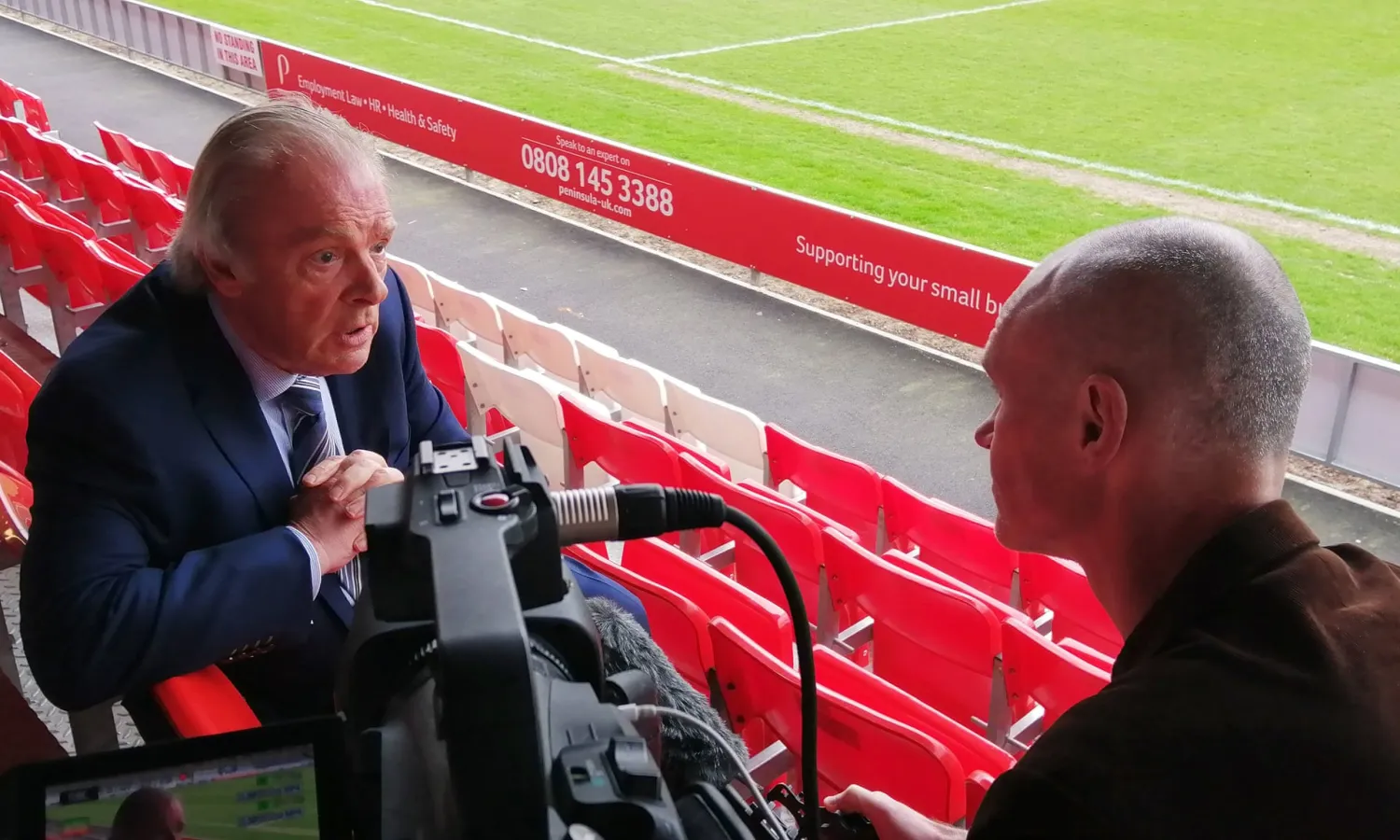Farewell, then, Gordon Taylor. Who knows, maybe this time it really will be adieu. The news that Taylor will be leaving his post imminently, a mere 39 years into his elevation to the role of Professional Footballers’ Association chief executive, will be met with caution by long-term Taylor watchers.
Like a zombified hand, thrust back up through the cemetery soil, Taylor’s most remarkable quality in recent years has been his astonishing indestructibility. This is a union boss capable of surviving not just successive rounds of bad publicity, gaffes, and campaigning opposition, but his own previous departure notice in 2018.
That Taylor should end up leaving on his own terms is tribute to his tenacity, his unquenchable will-to-power, and to his success in certain areas, most notably matters relating to the union’s income. Not to mention increasingly, his shamelessness.
This is not in itself a bad thing. Union bosses are not supposed to be shrinking violets and are often at their best as grandstanding can-do merchants. But it is a quality that has, in Taylor’s case, outlived and ultimately consumed his usefulness in his role.
It is the institution itself that demands our attention now. The most obvious side-effect of retaining a 75-year-old (seriously, football?) in a key leadership role across four decades of visceral change is the accompanying cultural stasis, the lack of new brooms and spring cleans.
Perhaps the most startling quality of Taylor’s union in the past couple of years is how utterly it has been left behind by the modern world. In that time it is Raheem Sterling and Marcus Rashford who have become the most influential campaigning figures for the welfare and status of elite players.
Imagine, if you can, a players’ union with the presence and the sensitivities to hitch itself properly to the campaign Sterling has waged against racism using just his own wits and a social media account. Or a union that could channel Rashford’s devastatingly clear-sighted messaging on social issues that speak to so many people.
Imagination is required, because it seems to exist in a different world to this cutting edge – to the extent the idea of Taylor and Rashford sharing a platform seems mildly absurd. The feeling of entropy in what should be a position of real influence is tangible. A few years back Joey Barton described Taylor as a “fat, festering old king” – inaccurately as it happens. Taylor is not particularly fat.
Two obvious questions present themselves. What to make of Taylor’s own multi-era-spanning tenure? And, more pressing, what next for the union?
For various reasons, not least his own remarkable anti-charisma, there will be some celebration at Taylor’s departure. There will be an urge to point only to the obvious failings, plus – it is one of the great obsessions of English football – his salary.
The positives first. Taylor leaves the PFA with booming finances and a platform to do a great deal more. It was Taylor’s strike threat in 1992 that hitched the PFA to the Premier League’s new income streams. A similarly muscular approach drew an improved deal from Richard Scudamore, not a man instinctively given to offering improved deals.
Taylor was mild rather than silent on campaigning issues. He helped establish Kick It Out, a good idea underfunded and understaffed. But two issues will define how he is remembered in the short term. Most recently, evidence of dementia in former footballers has been a source of anger over a perceived lack of support. Clubs and governing bodies have the ultimate duty of care. But a functioning union could and should have done more for its members’ welfare.
Then we have the gaffes and the blunders: the comparison of Ched Evans’s return to the struggle of the Hillsborough families; the lack of discretion over abuse survivors and players’ mental health issues.
Finally, there is that salary, about £2m, far more than any other trade union leader. This has been a constant point of comparison with the sums spent supporting members and good causes. In his defense Taylor may indicate the madness of football’s finances generally – Scudamore, for example, was paid a £5m golden goodbye. Mesut Özil is on £18m a year. Nothing makes sense here, nothing is proportionate.
The PFA is a body that has always had finances at its heart. It was founded in 1907 as a means of extending and then abolishing the maximum wage, which it finally succeeded in doing under (the unpaid) Jimmy Hill.
It is from here the current oddity springs. Such has been the contortion in football’s finances over the past 30 years that the union now finds itself acting for both multimillionaires and lower-league players on regular salaries, all of whom pay the same £100 dues.
Little wonder a figure such as Taylor should have risen with it over those years and that this organization should have started to look so strange, so unbalanced, so torn at by competing needs. In this sense it does at least reflect accurately the industry it serves.
The PFA does have a chance to reconfigure itself. What is certain is that Taylor has wildly overstayed his natural time slot, even if in the process his own sharp elbows have helped rake in huge amounts of cash. A thorough review of finances is promised. In the meantime it is worth considering what a leader of genuine vision and zeal could do with the campaigning power Taylor seemed only to occupy but not to exercise.
(The Guardian)









